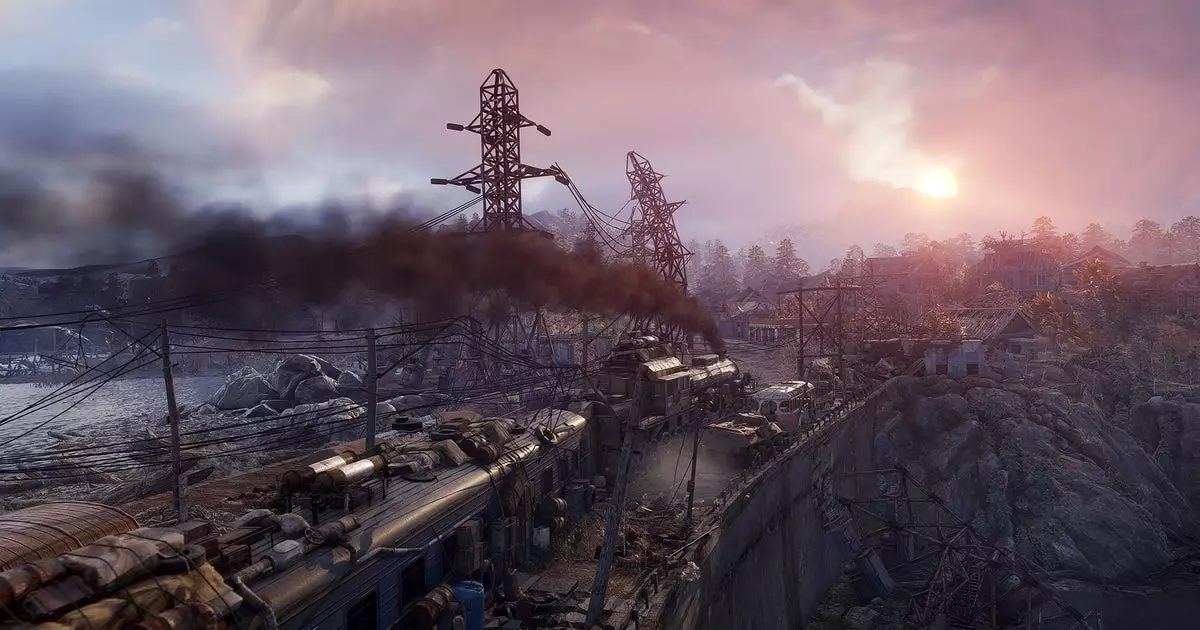As Metro 2033 celebrates its fifteenth anniversary, the gaming community finds itself not only reminiscing about the gripping narrative of survival in a post-apocalyptic Moscow but also engaging with the profound themes that have emerged as reality for its creators. Originally born from the mind of Dmitry Glukhovsky, the franchise has grown from a haunting novel to a landmark in the first-person shooter horror genre. The anniversary offers a moment to appreciate the intricate world-building and emotional depth that have defined the series, elevating its storytelling beyond mere gameplay mechanics and into the realms of philosophical inquiry about humanity and society.
Context Shapes Content
4A Games, the studio behind the series, has openly shared the impact that the ongoing Russian invasion of Ukraine has had on their creative process. This turbulence of war has not simply been a background noise; it has fundamentally reshaped the very essence of what Metro 4 aims to convey. The studio’s candid admission that “art became life” for many developers reflects a deep, unsettling truth: the themes of conflict, tyranny, and the fight for freedom, which were previously narratives woven into the fabric of Metro’s lore, have now been thrust into the forefront of their reality. As art imitates life, the studio is harnessing their harrowing experiences to craft an even darker, more resonant story for the next installment.
A Somber Note in A Celebratory Landscape
While fans around the world express excitement for the future of the series, there remains a poignant undercurrent that cannot be ignored. The enthusiasm is joyfully tempered with the understanding of the grim circumstances under which it is being created. The 4A Games blog post acknowledging the “missile strikes, air-raid sirens, and terror” serves as a stark reminder that for the creators, this is not just another media project but a matter of survival, resistance, and emotional confrontation. Their dedication to continue developing games that reflect their lived reality speaks to a profound level of resilience and commitment—a duality that enriches the narrative depth of their forthcoming titles.
Cultural Critique Through Gameplay
Metro 2033 and its successors have always been more than mere entertainment; they serve as a powerful critique of war and its fallout. As 4A Games commits to upholding this legacy, the collaboration with Glukhovsky underscores the franchise’s roots in strong, socially conscious storytelling. The intertwining of personal experience with a broader socio-political commentary creates gaming content that is not only engaging but also essential for understanding the human condition amid chaos. By coloring the gameplay with real-world understanding, Metro continues to evolve as a conduit for exploring difficult themes, transforming a mere gaming experience into an interactive mirror reflecting societal struggles.
The anticipation for Metro 4 is palpable, yet it comes tangled with the reality of the world that birthed it. The nexus of art, experience, and war raises fundamental questions: How will these harsh realities influence the player’s journey? Will they compel players to confront their own perceptions of courage, resilience, and the price of freedom? As Metro 2033 reaches this significant milestone, it does so not as an isolated narrative but as a poignant, ongoing conversation that connects a digital universe with the stark truths of our own.


Leave a Reply